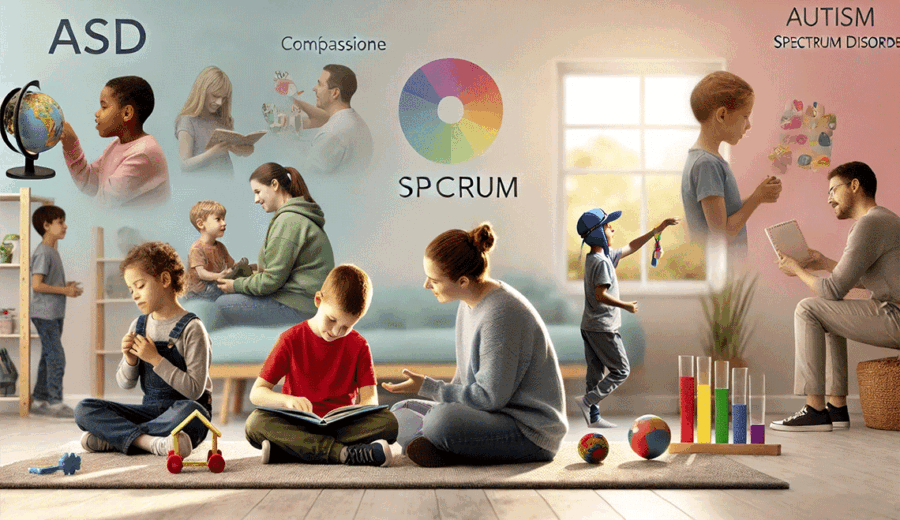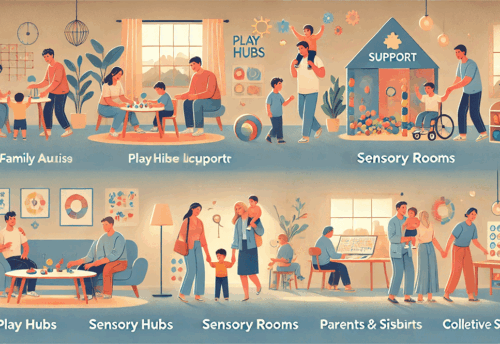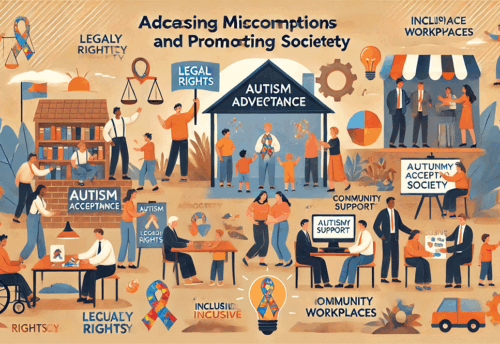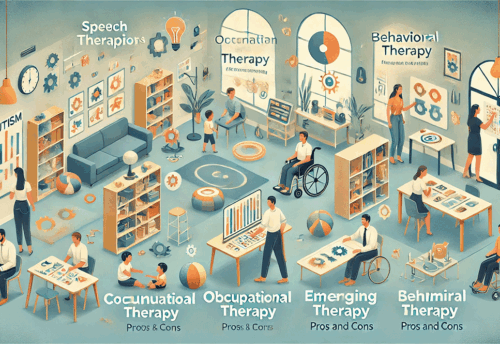
What is Autism ?
What is Autism?
Autism Spectrum Disorder (ASD) is a neurodevelopmental condition that influences how a person interprets, interacts with, and responds to the world around them. People with autism may have distinct ways of experiencing, processing, and interpreting social interactions, behaviors, and sensory information. Since autism exists on a spectrum, each person with autism has a unique set of strengths, challenges, and support needs. For some, autism brings remarkable talents or intense focus on certain interests, while others may need assistance with daily activities.
Key Characteristics of Autism
1. Social Communication Challenges
- Difficulty Interpreting Social Cues: Many people with autism find it challenging to understand non-verbal cues like facial expressions, gestures, or tone of voice. For example, a person with autism may not understand that a frown indicates disapproval or that a raised eyebrow signifies surprise. This can lead to misunderstandings in social situations.
- Expressive and Receptive Language Differences: Some individuals with autism may struggle to express themselves verbally, while others might take language very literally, missing nuances or figurative speech. For instance, if someone says, “It’s raining cats and dogs,” a person with autism might not realize this is a figure of speech and may interpret it literally.
- Differences in Interaction Styles: Social interactions can feel overwhelming for some with autism, who may prefer more solitary or structured settings. For example, rather than engaging in group activities, a person with autism might be more comfortable working on a personal project or participating in a one-on-one conversation on a focused topic of interest.
2. Restricted Interests
- Intense Focus on Specific Topics: Many autistic individuals develop intense interests in particular topics, hobbies, or activities, which can bring them joy and a sense of mastery. For example, a child with autism might have a deep fascination with dinosaurs, knowing hundreds of facts about them and able to identify each by name. This intense focus can also be highly beneficial, as seen in adults who excel in specialized fields, such as computer programming or historical research.
- Benefits and Challenges of Restricted Interests: These interests can be used as tools for learning and connection. Teachers and therapists often incorporate an individual’s specific interest to help them engage in broader subjects. For instance, a teacher might use a child’s love for trains to teach them about geography, counting, or reading comprehension.
3. Repetitive Behaviors
- Examples of Repetitive Actions: Repetitive actions like hand-flapping, spinning, rocking, or arranging objects in a particular order are common in people with autism. These behaviors, often referred to as “stimming,” can serve as self-soothing mechanisms that help an individual cope with overwhelming emotions or sensory input. For instance, if a child with autism feels anxious, they might find comfort in spinning a toy or tapping their hands rhythmically.
- Routines and Predictability: Routines provide a sense of stability for many with autism. Changes in routine, such as a sudden shift in the schedule, can cause anxiety or discomfort. For example, if a child is used to eating breakfast at the same time every day and the schedule changes unexpectedly, they may feel distressed. To help, caregivers and teachers often use visual schedules or gradual transitions to prepare for change.
Understanding the “Spectrum” Concept
Autism is called a “spectrum” because the experience varies widely from person to person. There isn’t a single type of autism but a range of expressions, challenges, and strengths within the autism spectrum.
Examples of the Spectrum:
- Highly Independent Individuals: Some individuals with autism are highly independent, holding successful careers and thriving in social and professional environments, often drawing upon their specialized interests and attention to detail. For instance, an adult with autism who is passionate about computers might excel as a software engineer, as they may be particularly skilled at focusing intensely on code and problem-solving.
- Individuals Needing Daily Support: On the other hand, some people with autism require significant support with daily activities. They might have co-occurring conditions like intellectual disabilities or sensory processing challenges, which may make independent living difficult. These individuals may rely on caregivers or support services to manage daily tasks like cooking, transportation, or communication.
The Importance of Understanding Autism
The diversity within the autism spectrum shows that no two individuals experience it in the same way. Understanding this spectrum allows society to foster inclusivity and respect for all kinds of minds and abilities. Acknowledging and valuing this diversity creates a more accepting world where each individual can thrive and contribute in their unique way.
By learning about autism, embracing these differences, and making spaces accessible and inclusive, we can build communities where everyone is understood, valued, and supported.





Leave a Reply